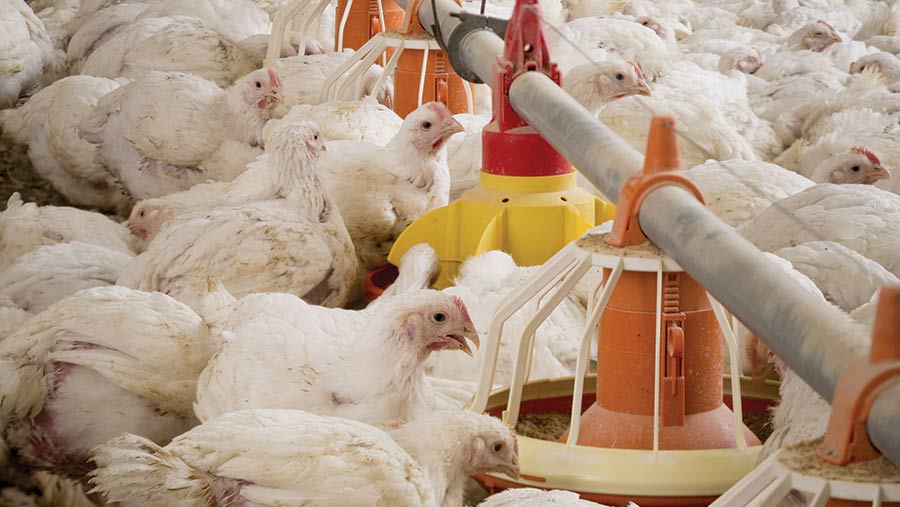Cobb wins compartment status for breeding facilities
 © Jim Varney
© Jim Varney Genetics firm Cobb’s farm and broiler breeding hatching facilities have been awarded GB enhanced compartment status, meaning exports of stock can, in theory, continue in the event of a notifiable disease outbreak.
Cobb has successfully won the accreditation, which ring-fences its facilities and considers them a separate region to the rest of the UK in the event of a serious disease outbreak.
Without compartmentalisation, exports of valuable genetic material would automatically halt until the UK regained disease-free status.
See also: Top poultry farmers offer business outlook
Now, with the agreement of an importing country, exports from the selected facilities will continue.
The approval by the Animal and Plant Heath Agency (APHA) covers the great grandparent and grandparent stock farms of Cobb Europe, which extend across East Anglia and the East Midlands and the grandparent hatchery in Norfolk. They supply breeding stock to customers worldwide.
Lyndsey Cassidy, quality assurance coordinator at Cobb Europe, has worked on the project since she joined the company five years ago.
“In a world where there is a real need to manage trade and maintain a secure supply to all customers, notifiable disease outbreaks are becoming a significant concern,” she said.
“Poultry breeding stock is now shipped around the world from a small number of primary breeding companies. Outbreaks of both avian influenza and Newcastle disease can severely impact trade as national governments can choose to block imports from affected countries for weeks or even months.
“Maintaining country freedom from notifiable diseases is no longer a viable approach to preserving open trade routes, and this is why achieving the compartment status is so important not only to breeding companies like Cobb but to customers who rely on regular imports to continue their own production.”
Disease free
In 2004, the World Health Organisation for Animal Health (OIE) introduced the concept of compartments to recognise businesses which operate to a standard of biosecurity that they can ensure their facilities will remain disease free even in the event of a notifiable disease outbreak in the country.
In 2009, the UK government introduced its own version of compartmentalisation. They adopted all the rules of the EU compartment standard, but additionally required enhanced serological testing and biosecurity. This has resulted in the “GB enhanced” compartment having the most stringent requirements for any currently operating compartment scheme in the world.
